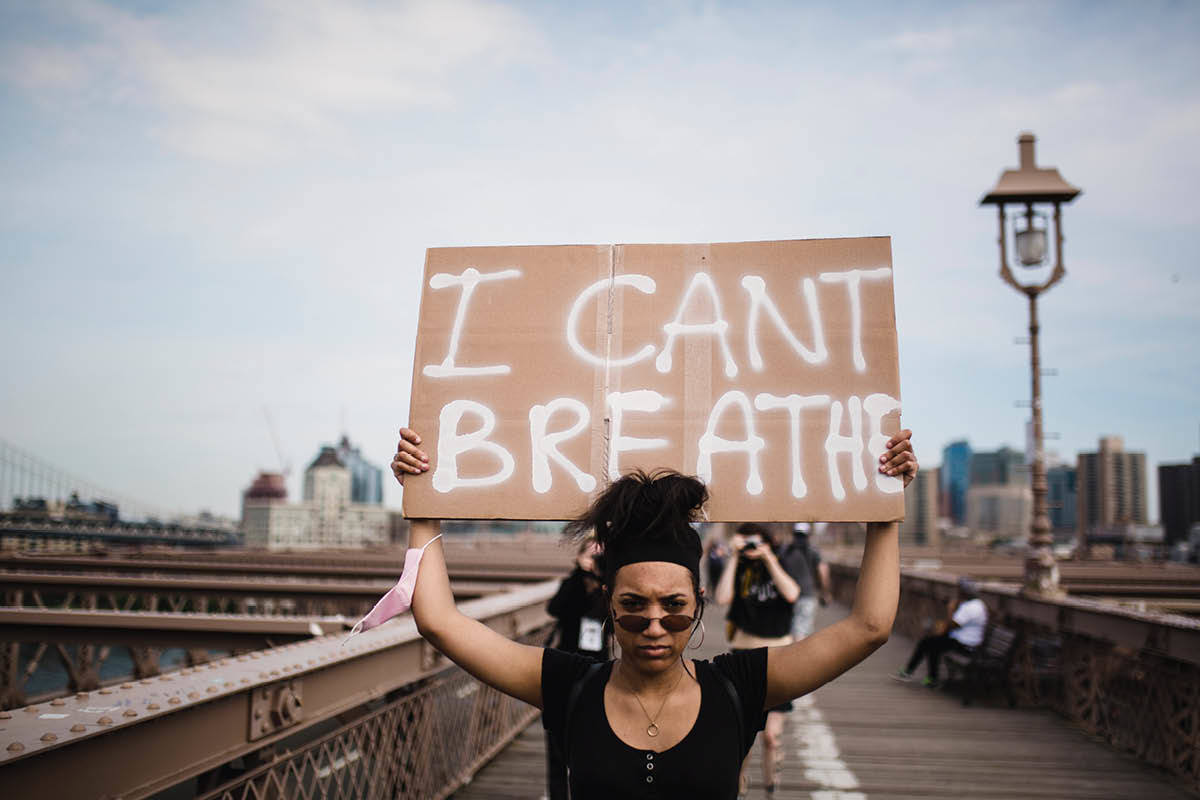
Why Environmentalists Should Support BLM
Environmentalism is not only connected to the black power movement, it originated from it.
Top Image: Jerome Friar via UNC Libraries Preview Image: Steve Helber via AP Photo
“Intersectional feminism” is a term that (hopefully) most of you should be familiar with. To recap, It is a form of feminism that understands that there are different degrees of discrimination a woman can experience based on her racial, social, political or sexual identity. Simple enough, right?
The term “intersectional environmentalism,” however, will probably raise a couple of confused eyebrows (I see you) and you might ask yourselves questions like:
“Why does environmentalism have to be intersectional ?,” and “Really? Do we have to make everything about race?”.

Photo: Markus Spiske via Pexels.com
Well, let me answer these questions for you: Yes. Environmentalism is a social justice issue, more specifically a racial issue and therefore, environmentalism has to be seen as intersectional. And yes, in an unjust, white normative, capitalist society, everything is sadly about race and build to exploit those at the bottom of the racial leader.
The same system of power that has historically abused and exploited people is the same system of power that continues to mistreat and exploit the planet. The environmentalist movement and anti-racist movements are, therefore, linked because they are combating issues that originate from the same source.
“I think about people who got the worst food, the worst health care, the worst treatment, and then when freed, were given lands that were eventually surrounded by things like petrochemical industries.”
- Elisabeth Yeampierre

Photo: Bloomberg CityLab
Let's take a little trip through history and let me explain what happened 1982 in Warren County:
The then-current governor announced his plant to bury toxic soil in a landfill in that region and his decision was immediately met with complaints. The residents feared that the toxic waste would block waterways and degrade the air quality. Additionally, they claimed that the decision to dispose of Warren County had to be racially motivated, due to a large amount of Blacks, African-Americans, and generally minorities in that area … and they were right.
“Whether by conscious design or institutional neglect, communities of color in urban ghettos, in rural ‘poverty pockets’, or on economically impoverished Native-American reservations face some of the worst environmental devastations in the nation.”
- Professor Robert Bullard
Dumping industrial waste in mostly black areas or areas populated by minorities had become an easy decision for local politicians, at that point. Minorities usually lacked the connections to lawmakers to change their decision, the money to hire lawyers to fight it in court, or were disadvantaged by a general lack of information about how industries or industrial waste near their communities would impact their health.
A 2018 study on air quality in the American Journal of Public Health, researchers found that “non-whites” suffered from 1.28 times more polluted air and that Black residents suffered 1.54 more air pollution. A GAO study in 1983 determined that three-quarters of the waste landfill sites in eight southeastern states were located in primarily poor, African-American and Latino communities. Another report by the UCC's Director of Research Charles Lee found that race had become the single most important factor in determining where toxic waste facilities were sited in the United States. Activist coined this “environmental racism.”
So when trucks rolled down the streets, 1983 in Warren County, the mostly Black citizens decided they had enough. To stop the trucks from dumping the soil they laid down on the streets as a form of peaceful protest. Almost all participants of the protest got arrested.
Six weeks of marches and nonviolent street protests followed that ended in the additional arrest of 500 people.
At this point, you might be asking yourself why am I telling you this?
I am telling you this because these were first arrests in U.S. history over an environmental cause, ever.
So I wasn’t just rambling about things of the past and I could honestly talk about this issue forever, but we don’t have all the time in the world and I still need to get my point across:
The environmental movement originated from the racial justice movement.
Yet environmentalists, to this date, continue to neglect black voices within the movement, black lives for that matter, or fail to recognize the huge social justice issue that climate change and environmental destruction actually are.

Photo: Lucien Wanda via Pexels.com
If we look at the most prominent environmentalists, or just the second most prominent ones, one thing becomes painfully obvious: They are mostly white and all of the non-Black.
Furthermore, public discussions about environmental issues, usually just mention the preservation of nature and the planet, acidifying oceans, rising sea levels, droughts, extreme weather, and a planet that is slowly become inhabitable to us if our incumbent leaders don’t act immediately.
However, these discussions fail to mention the people these changes are going to affect the most. The people, who already live in poverty, in polluted areas, and whose children already twice as likely to get Asthma as their White counterparts and three times more likely to die from it, due to their lack of privilege and access to resources and unfortunately, these are mostly people of color.
Environmentalism needs to be intersectional because it cannot continue to ignore those that will be most impacted by the consequences of a dying planet.
Therefore, the movement should view it as their responsibility to highlight people of color within their call for change, amplify their voices within the movement, and add fuel and momentum to social justice movements specific to them, like Black Lives Matter.
Environmentalism not only about the planet. It is undeniably also an anti-racist cause, as it is an anti-classist cause and a way to bring attention to a huge public health emergency that continues to go by mostly unrecognized by the public.
Contrary to public belief climate change and environmental destruction just are not isolated issues. They exist entangled in the larger web of global inequalities and need to be solved with consideration to them.

Photo: Life Matters via Pexels.com
We already live in a world where people of color are screaming that they can’t breathe due to the cribbling pressure of everyday racism and discrimination.
If we continue to ignore them in our environmentalism by continuing to build chemical plants near their homes and polluting their air and water by letting them live in the most geographically vulnerable regions, we will be building a world in which they literally can’t.
Next Up, What Does Conscious Beauty Mean, And Why Does It Matter?











